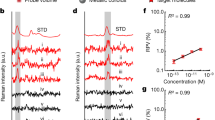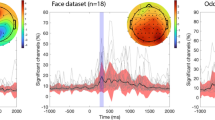Abstract
THE application of the method of least squares to physical measurements is described in several standard text-books—to wit, Kohlrausch's “Introduction to Physical Measurements” (third edition, 1894), Stewart and Gee's “Elementary Practical Physics” (1885), and others. In none of these is it pointed out that the method as set forth offers in certain cases a choice of results, and that the solution is practically unique only if a sufficient number of observations be taken. Nor is any indication given how the method is to be applied when none but a small number of observations is available. Since the method is intended for use only when a high degree of refinement is aimed at, these points are of practical importance.
This is a preview of subscription content, access via your institution
Access options
Subscribe to this journal
Receive 51 print issues and online access
$199.00 per year
only $3.90 per issue
Buy this article
- Purchase on Springer Link
- Instant access to full article PDF
Prices may be subject to local taxes which are calculated during checkout
Similar content being viewed by others
Author information
Authors and Affiliations
Rights and permissions
About this article
Cite this article
RAVENSHEAR, A. The Use of the Method of Least Squares in Physics. Nature 63, 489–490 (1901). https://doi.org/10.1038/063489c0
Issue Date:
DOI: https://doi.org/10.1038/063489c0
Comments
By submitting a comment you agree to abide by our Terms and Community Guidelines. If you find something abusive or that does not comply with our terms or guidelines please flag it as inappropriate.



